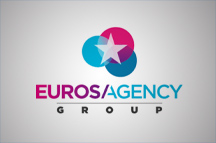GK’s European partner, Euros / Agency offers its insight on the latest developments from Brussels. If you would like more information on the article below, contact Sloan Moreau (sloan.moreau@eurosagency.eu).
Elections for the European Parliament are fast approaching, with 6 June only a few weeks away. As this is the European Parliament’s first election since Brexit, and the first held since Russia’s invasion of Ukraine, all eyes are on how, if at all, the landscape will be shaped by the results.
The European People's Party (EPP), chaired by Ursula Von der Leyen, leads the polls, and officially launched its campaign in Athens. Criticism of Vladimir Putin and his European allies, promotion of a European defence share-spending model, and support for the Green Deal all featured as key topics during the campaign launch event.
The Socialists & Democrats (S&D), currently projected second place behind the EPP, is facing a double challenge. With its programme lacking substance and its Spitzenkandidat (lead candidate) struggling to gain traction despite an intense European tour, it remains unclear on how to bridge the gap to the EPP.
Behind the two frontrunners, the far-right ID group is still in the race for third place, along with the European Conservatives and Reformists (ECR) and Renew. Forecasts show the group will secure around 12% of votes, delivering 87 elected MEPs. However, there is still a long way to go before the elections, and a number of obstacles could prevent the group from turning the corner. This includes the proximity of certain members of the group to Russia, which is likely to result in increased scrutiny over the coming weeks. Macron, as part of Renew, has developed a remedy to fortify liberal sway across the EU, by establishing a "New Europeans" club aimed at addressing liberal fragmentation. Despite encountering resistance from more conservative liberals, this alliance, comprising 22 MEPs, is seen as the first step towards a genuine liberal European political force.
Meanwhile, the Greens in Parliament welcomed two political parties: the Greens and the European Free Alliance (EFA). Made up of regionalist, autonomist and nationalist political parties, the EFA currently has six seats in Parliament, however current estimates don’t bode well in terms of seat projections.
Lagging behind the rest in the polls is The Left. The political group held a joint conference titled "Europe for the People" on 4 April, in a noticeable effort to project a united front. Faced with more pessimistic seat estimates than in previous elections, The Left may decide to change its strategy from electoral counter-weight to coalescing social forces in order to create pockets of social resistance.












